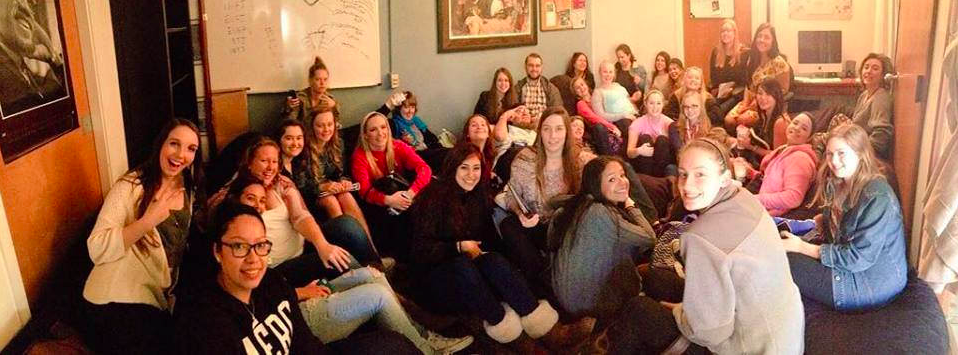Margaret Anderson teaches in the Hutchins School of Liberal Studies, a program predominantly geared towards students studying to become elementary school teachers, but is also a valuable program to people who crave a unique learning environment. Anderson went through Hutchins herself and has been involved in the program for twenty years, making her credibility as an educator legitimate.
Anderson attended a few years of college, dropped out, then decided to focus on work. For a short while, she found herself working in an after school program in special education alongside children who suffered from mental and physical abuse.
Then she became motivated to return to college and completed six years of undergraduate work in addition to receiving a minor in film. Anderson’s leave of absence from Hutchins was short lived as she was soon given the opportunity to rejoin the program to be a full-time teacher.
“Teaching keeps you in a learning environment. For me, the idea that I actually get to be a student is one of the major reasons for being a teacher,” Anderson said
Her classroom doubles as The Dialogue Center, which is equipped with multiple large beanbags to enhance the comfortable learning environment. She feels the decorations in the room such as a poster of a smiling Malcolm X signifies exploring different perspectives and adds to the exploration of the mind she hopes to instill in her students. She strongly believes that if the conditions are set up correctly, the learning will happen. What matters most to her about teaching is not just the teacher connecting with the students, but more importantly, the students connecting with each other as well as with books, texts and ideas in ways they never thought possible.
“Seminar-based learning is the only way I’d be a teacher,” Anderson said. “Seminar works because I believe people are intellectuals and they want to learn and explore ideas and we don’t have many opportunities in our K-12 culture to do that. All humans have the capacity to learn this way if given the right training and exercise to demystify all this kind of elitism and exclusivity and these high school test scores in order to do what all humans are wired to do.”
By having full access to The Dialogue Center, Anderson is able to dismantle stereotypic learning strategies and implement her teaching style of “kindness connected with rigor.” It serves as a safe place to explore one’s truth, values and ideas. Anderson believes a sense of community is often missing from educational environments.
“Margaret’s passion for teaching and love for her students shines in her seminars. Not only does she lead deeply challenging discussions, she also takes the time to get to know each and every one of her students,” said former student Danna Friedman. “She made me feel unique in a time when I was confused about my identity.”
With Anderson being a master of dialogue, it is extremely satisfying to watch her work in a group setting and witness her magical seminars skills in action. Fellow Hutchins professor and close colleague Wendy Ostroff said, “Margaret is one of the most gifted teachers I’ve ever met. She has the ability to take on other people’s perspectives and really be open minded. She’s also a fantastic articulator so when people have thoughts that they can’t quite put into words, she can capture them better than anyone I’ve ever known.”
Hutchins School of Liberal Studies and Arts and Humanities Advisor, Donna Garbesi, said Anderson is “an integral part of the program and in addition, gives her services to the campus community at large, therefore contributing to every facet of Sonoma State.”




































